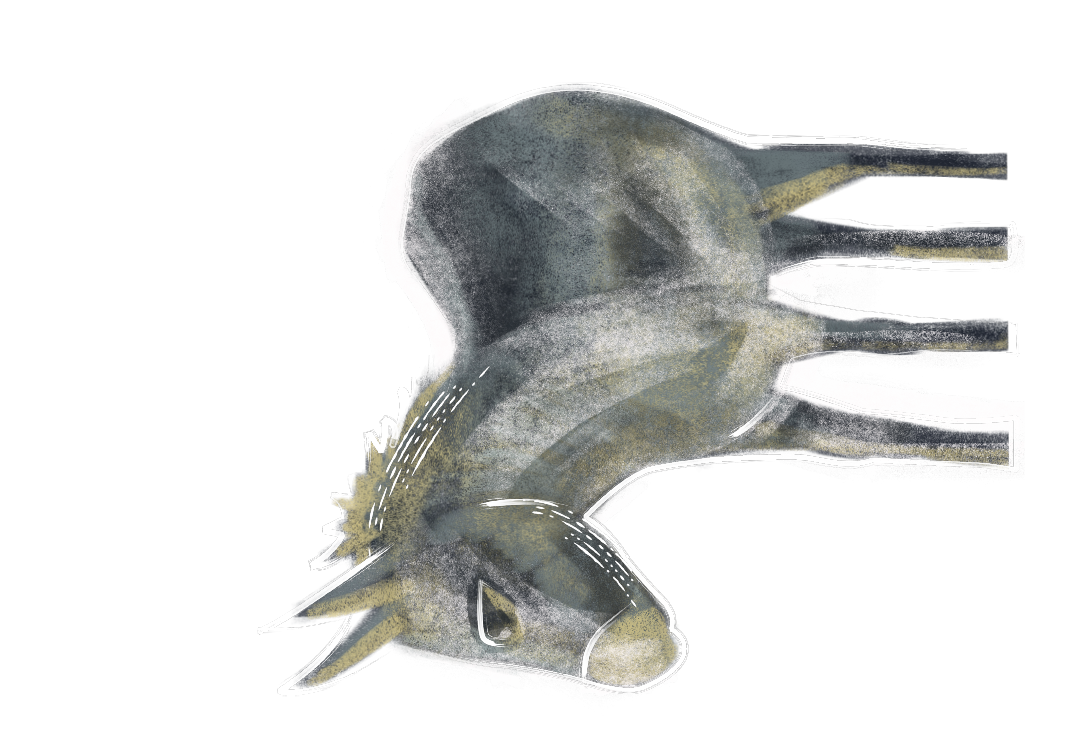
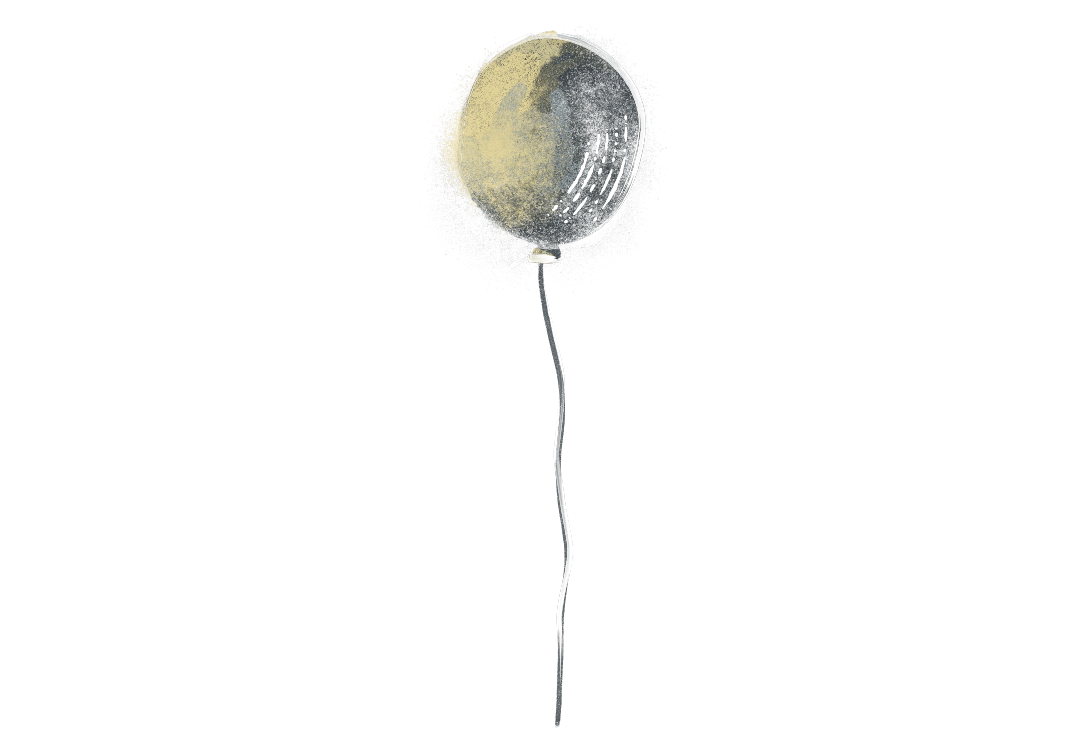
On Political Imagination and the
Claiming of Our World-Building Potential
Aline Godoy-Vieira
It is with great pleasure that I write these words in commentary on the contributions gathered in this edition of Occupational Punk vol. 3. Reading the texts presented here was a transformative experience, capable of affecting my own narrative about everyday life on Earth. Imagining worlds and producing narratives about shared life is a fundamental human need, which demands continuous activation and sustenance — especially if we wish to reclaim the authorship of our own history.
By allowing myself to be affected by the narratives imagined here, I was repeatedly led to recall the reasons that moved me to cultivate soil, herbs, and food in my backyard, resignifying the meaning of everyday life and my sense of connection. I also reaffirmed my daily commitment to emancipatory projects, responding to the urgent need for anti-capitalist struggle and resistance to the advance of the far right, which aligns itself with a logic of planetary consumption and oppression. This refers to a connection with the Earth, with my ancestry, with future generations, and with those who share this planet with me in the present. I thus begin by thanking the editorial team for the opportunity to take on this role, and the authors of this edition — as well as all those who submitted texts — for the exercise of life and connection expressed and nurtured by their work.
The reason why these texts transformed me seems to reside in the revolutionary potential of analysing everyday life as a pillar of social totality (Galheigo, 2020; Farias, Lopes, 2021). Although constitutive of our condition as social beings, everyday life can only be grasped through an analysis that transcends its appearance towards its essence. For this, it is crucial to analyse the mediations enacted by human activity in the everyday life. To glimpse — and activate — its transformative potential, it is necessary to recognise the ontology of the social being structured in everyday life; that is, to collectively understand how each action manifests the totality and simultaneously transforms not only the world around us, but also ourselves (Lukács, 1980).
The concept of teleology offers an important interpretative key for this understanding. It refers to the capacity to imagine the outcome of an action before its execution — not merely as planning, but as intending transformation and recognising oneself within it (Mendes-Gonçalves, 2017). This process activates our engagement in the shared world, guiding how we select the materials with which we interact, determine the order of each gesture, and indeed, engage in everyday occupations. We must imagine before we can build something.
However, this capacity is sometimes interrupted. The concept of estrangement helps to explain this rupture: it concerns the phenomenon of separation between ourselves and the outcome of our activity in the shared world. In estrangement, we carry out tasks without recognising ourselves in them, establishing a utilitarian-practical relationship with everyday life, manipulating artefacts without an awareness that the world in which we could live depends on reclaiming the creative potential that lies within us (Farias, Lopes, 2022; Marx, 1984). Estrangement affects all individuals within the capitalist context, as capitalism depends on estrangement and alienation to generate profit from human labour. After all, if all of us could be horrified by the structure of capitalist labour — as happens with the young woman in Everyday Value — we would hardly accept it for long.
Rosana Pinheiro-Machado (2022), in a profound anthropological analysis of our times, identifies that the advance of the far right relates to an appropriation of the anger and insubordination of impoverished and oppressed populations, who constitute the majority. While it is legitimate to resist and act to overcome what oppresses us, resistance can take many forms. Especially in a context of capitalist cultural hegemony, individualism, competitiveness, and the notion of scarcity lead us to believe that we must fight only for ourselves and, at most, for our own.
In a world saturated with catastrophic narratives that exalt solitary heroes and absolute villains, imagining together is an act of resistance. Recognising that we are connected by something in common is a political gesture. It means acknowledging that our limitations do not stem from resource scarcity, but from isolation and the belief that we do not belong. It is imperative to reclaim hope as an active proposal, in line with the ideas of Paulo Freire and bell hooks (Farias, Lopes, 2022; Freire, 2005; Pinheiro-Machado, 2022; hooks, 2021). Texts infused with critical imaginative potential, like those in this edition, can support the redirection of just indignation and the production of radical needs to overcome the capitalist mode of production (Mendes-Gonçalves, 2017). It is a matter of contesting the legitimate anger and insubordination of oppressed populations, aligning them — and aligning ourselves — with a movement of collective and emancipatory transformation.
In this context, political imagination and hope become essential (Von Hunty, 2022). To imagine is to outline possibilities for the world. For this, we must possess a repertoire of possibilities and, above all, a consciousness of ourselves as subjects capable of imagining. Célia’s anguish in Let’s eat, when faced with her estrangement from the ability to imagine and plan a simple meal, reveals how nefarious — and how close — this estrangement truly is.
It is imperative to open up spaces that allow us to reclaim our doing, in its full teleological and ontological complexity. By experimenting with materials, relationships, and gestures, we become able to construct new repertoires and imagine previously unthinkable responses, such as the magical and ancestral use of the little finger in Otro cielo es punksible. The narratives in this edition constitute a meta-experimentation: the movement required for writing these stories, as well as that produced in those who read (or listen to) them, activates exercises of utopia and political imagination. This experience has the potential to engender new movements in everyday life by instating novel teleological processes aimed at connection, sharing, and a sense of belonging to a common project.
Connection and belonging emerge as central elements in reclaiming our creative condition. It becomes clear that an illusion of connection is not enough — no matter how realistic it may seem — as exemplified in the dialogue with artificial intelligence in Found, or in the holographic club in Outside. The sense of depth in a gaze exchanged without screens, as described in Transhumance, points to the need for experience and consciousness accompanied by a narrative that provides meaning — so that we may desire to break with daily oppressions and create innovative responses for shared life (Farias, Lopes, 2022). We must meet, touch, and see each other without interface mediation, so that genuine belonging can emerge.
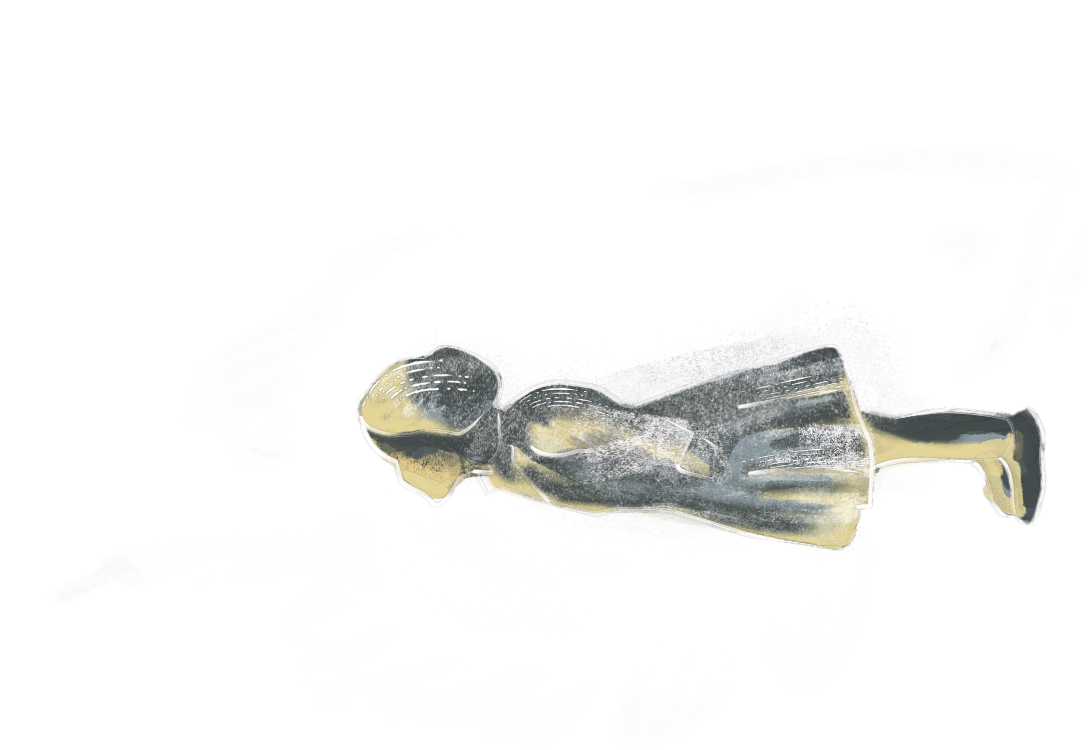
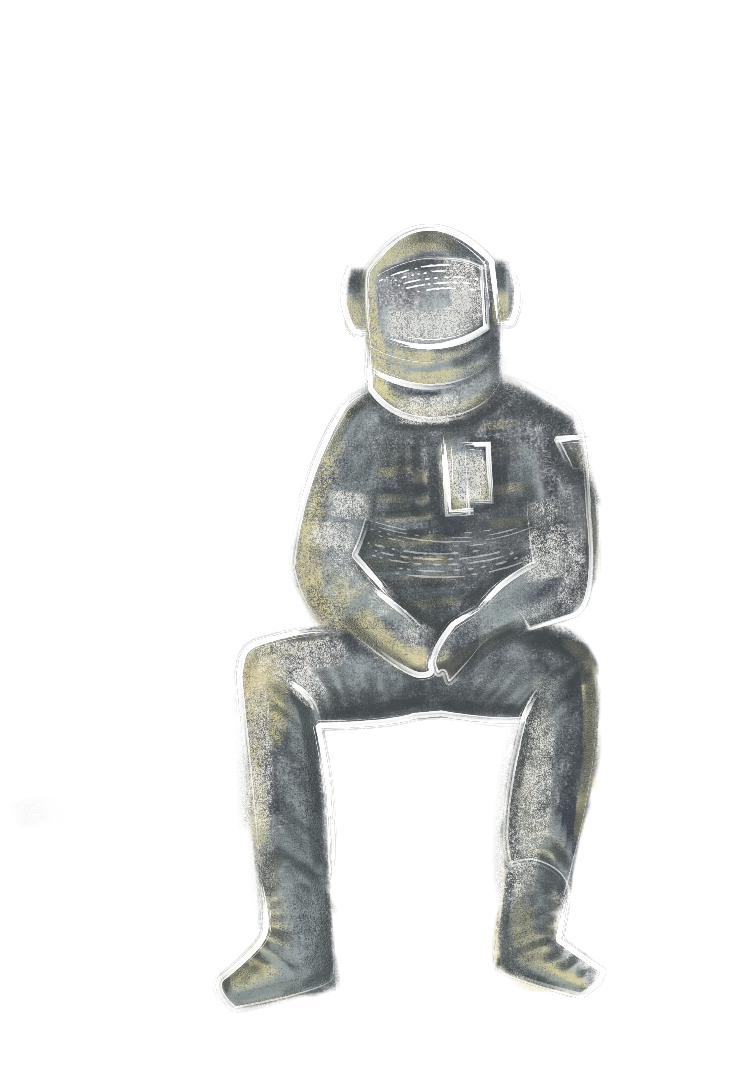
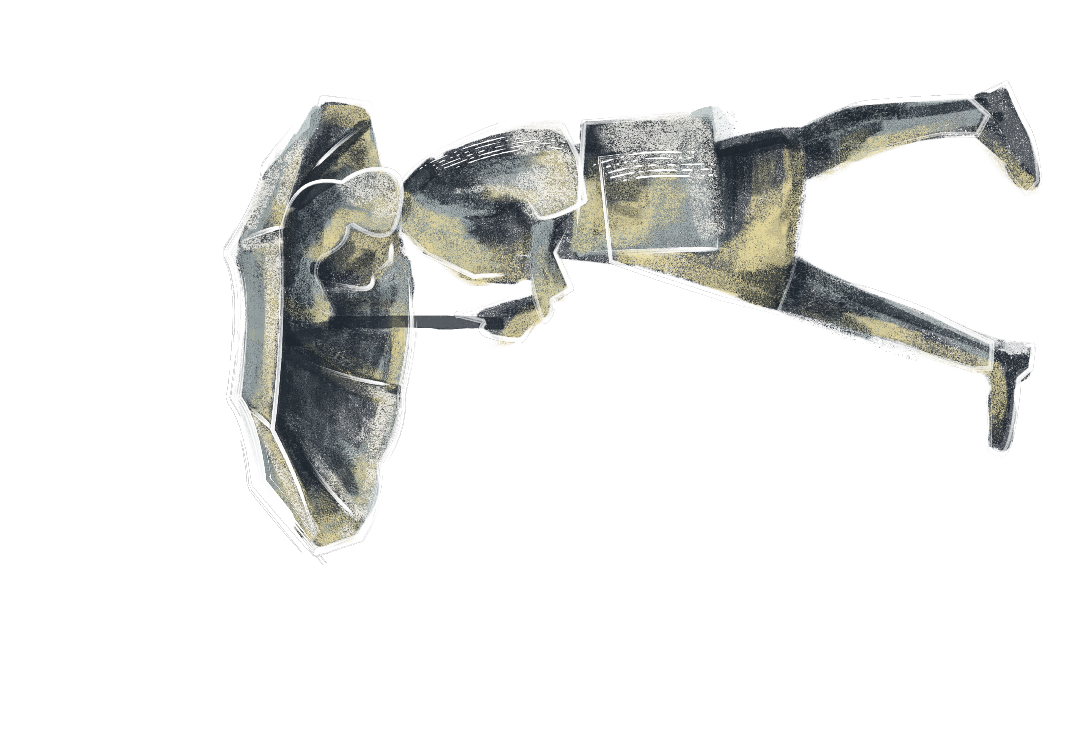
This seems to be the power of the proposal presented by occupational therapists in Co-Creating a Short Program in Occupational Therapy to Support Sustainable and Just Occupational Transitions, as they outline a formative journey that presents alternative narratives about the world and its artefacts, about nature, and propose experimentation in the reshaping of everyday life alongside learners. One can envision how such training could lead to the publications of the Francophone Journal of Research on Occupation – Anno 2151, in a context where knowledge is understood as a common good, constantly improved through collective effort.
To narrate is to dispute truth at the confluence between consciousness and teleology (Mendes-Gonçalves, 2017). In The Great Reset, when Jacira reveals that the narrative upheld by Veritas did not encompass the totality of the concrete world of shared experience; or in Soul Craft Rebellion, when the institutional narrative is unmasked by the exposure of concrete actions, but also of the human experience of those who resisted, this dispute emerges as a tool for the production of consciousness and empathy, with the potential to activate new teleologies and other relationships with technology. Upon identifying estrangement in our relationships with technology and institutions, we must recognise them as human creations, and therefore subject to transformation by human hands and minds.
Analysing technological and institutionalised everyday life from this perspective does not imply a rupture with technology, but rather with the estrangement and oppression of the capitalist mode of production in which we are building and using it. Technology is the result of human development and may serve as an emancipatory tool. The challenge lies in moving beyond its complex appearance and identifying the hands and actions that built it. Thus, it becomes possible to reclaim the role of active individuals in our relationship with it. This de-estrangement — in which technology returns to the status of a tool and individuals reclaim their agency — has the potential to reposition technological advancement in the service of humanity, the common good, joy, and pleasure, equitably for all.
The texts that inspire us in this edition reveal such possibilities with clarity and emotion. They move through body, mind, and heart. They provoke reflections on what we have lived, in connection with what we may yet live. From them emerges the realisation that concrete life is enacted in everyday gestures and that, when such gestures are connected by a collective intention of care and responsibility, they become revolutionary. This intentionality may shape the meaning of human activity, as activated through the analyses and propositions of specialists in everyday life human activity — occupational therapists and occupational scientists — who establish a conscious commitment to a collective emancipatory project.
Ursula K. Le Guin (2015), science fiction writer, affirms the political function of imagining worlds and sharing them through narratives as a significant contribution from writers to societal projects. Occupational therapists and occupational scientists, by analysing everyday life with others, and by proposing and experimenting, with them, experiences that rehabilitate imagination and collective doing, can also contribute to this broader struggle. Our everyday actions, when imbued with intentionality and critical awareness, can point towards the construction of possible worlds — not as imposed destinies, but history consciously assumed and built together by us.
References:
Farias, M. N., & Lopes, R. E. (2021). Everyday circulation and social occupational therapy praxis. Interface – Comunicação, Saúde, Educação, 25, e200717. https://doi.org/10.1590/interface.200717
Farias, M. N., & Lopes, R. E. (2022). Social occupational therapy, anti-oppression and freedom: considerations about the revolution of/in everyday life. Cadernos Brasileiros de Terapia Ocupacional, 30(spe), e3100. https://doi.org/10.1590/2526-8910.ctoEN234531002
Galheigo, S. M. (2020). Occupational therapy, everyday life and the fabric of life: theoretical-conceptual contributions for the construction of critical and emancipatory perspectives. Cadernos Brasileiros de Terapia Ocupacional.28(1), 5-25. https://doi.org/10.4322/2526-8910.ctoAO2590
Godoy-Vieira, A., Malfitano, A. P. S., & Soares, C. B. (2024). Fundamentos do processo de trabalho em terapia ocupacional: uma abordagem analítica a partir do diálogo entre Terapia Ocupacional Social e Saúde Coletiva Latino-Americana. Cadernos Brasileiros De Terapia Ocupacional, 32, e3627. https://doi.org/10.1590/2526-8910.ctoAO278836271
Le Guin, U. K. (2015, November 19). Ursula K. Le Guin – National Book Awards Speech [Video]. YouTube. https://www.youtube.com/watch?v=wntFiJ7OrzM
Lukács G. The ontology of social being – 3. Labour. Merlin Press: London; 1980.
Mendes-Gonçalves, R. B. (2017).Práticas de saúde: processo de trabalho e necessidades. In J. R. C. M. Ayres & L. Santos (Orgs.), Saúde, sociedade e história (pp. 298-374). São Paulo: Hucitec.
Pinheiro-Machado, R. (2022, March 16). Autoritarismo e redes sociais: o que sabemos e o que ainda precisamos responder – Aula Magna [Vídeo]. YouTube. https://www.youtube.com/watch?v=Vw_hJX17u2E
Von Hunty, R. [Tempero Drag]. (2022, 4 mai.). ESPERANÇA E IMAGINAÇÃO POLÍTICA [Vídeo]. YouTube. https://www.youtube.com/watch?v=iqI7ZHVniSg
Freire, P. (2005). Pedagogia do oprimido (41ª ed.). Rio de Janeiro: Paz e Terra.
hooks, b. (2021). Tudo sobre o amor: Novas perspectivas (S. Borges, Trad.). Editora Elefante.
Marx, K. (1982). O capital: Crítica à economia política (7ª ed.). São Paulo: Difel.
